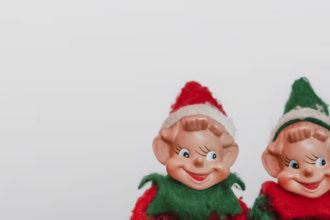Etymology
FRENCH AND ITALIAN DISEASES
Syphilis has a fascinating history that dates back to the 1490s during the French invasion of Italy. Interestingly, each country had its own name for the disease based on…

Unlock the Pulse of the Present
Subscribe Now for Real-time Updates on the Latest Stories!
Popular News
Fat Molecule Holds Clues for Treating Diabetic Heart Disease
Globally, diabetes affects approximately 830 million individuals, making up over 10 percent of the global…
Jack Smith Moves to Dismiss Trump’s Jan. 6 and Documents Cases
The special counsel has successfully concluded the Justice Department's investigations into Donald J. Trump's involvement…
John Robson: When It Comes to Science, Nothing Can Be Taken for Granted
Commentary Just like Poe’s purloined letter, sometimes the most obvious things can be the hardest…
Nursing Home Industry Wants Trump to Rescind Staffing Mandate
The future of a Biden administration rule that set minimum staffing levels for nursing homes…
Latest Etymology
The Grammarphobia Blog: When ‘like’ means ‘lack’
Q: Is it common in the South, specifically in Kentucky, for people to use “like” to mean “lack”? For example,…
CASSEROLE PAN
The term casserole was adopted in the early 1700s from French, where it denoted a "sauce pan." The suffix…
‘Words From Hell’ Emerges from the UnderWord, Exposing Etymology Horrors for All to See – Useless Etymology
Plus, 5 haunting etymology facts to celebrate the book’s Halloween release. Something wicked—and wordy—this way comes. Today, Oct. 31, 2023,…
SUBLIME LIMITS
The origin of the English word "limit" can be traced back to the Latin noun limes, meaning "path" or…
‘You had your will of me’
In James Joyce's "The Dead," the mention of "The Lass of Aughrim" raises questions about the use of the word…
The Grammarphobia Blog: How unnatural is ‘preternatural’?
Q: Why is the word “preternatural” so commonly used, especially in The New York Times? It seems to be more…
A Brief, Etymological History of Christmas Elves – Useless Etymology
In Old English, your average elf (or ælf or ylfe) belonged on the naughty list: They were malicious, imp-like creatures,…
Wanna look like a chumbolone?
Q: Have you encountered the term “chumbolone”? It’s new to me. I came across it on John Kass’s website. He…











